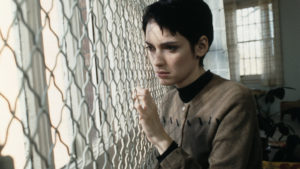In the May of 1921, André Gide spent a long evening with Marcel Proust. Much of the conversation revolved around homosexuality, with the older writer showing Proust some pages of an autobiography he was writing. “You can say anything you want,” Proust exclaimed, “as long as you never say ‘I’”. Yet as Gide later noted in his journal, that wasn’t his view at all. To prove his point, in 1926 Gide finally published, releasing a book that could anachronistically be described as the first ever “coming-out” memoir.
Gide’s fictional works had already contained clues about his sexuality: but readers preferred to ignore them or simply failed to understand. If Gide moved cautiously on his journey, it was partly because, like many gay men of his era, he was a married man. And while homosexuality was not then illegal in France — Oscar Wilde could not have been sentenced to prison in Paris — it did labour under the weight of moral opprobrium.
What empowered Gide to “say ‘I’” was that his relationship with his wife had reached a crisis, and his own growing literary reputation had given him more confidence. Even so, his friends begged him not to bring the book to print, leading him to quote Ibsen. “Friends are to be feared not for what they make you do,” he warned, “so much as what they prevent you from doing.”
In the end, If It Die was released — and just as well, for it is a masterpiece of autobiography, comparable to the Confessions of Rousseau. Like his Genevan forebear, indeed, Gide glories in telling stories that would put him in a bad light: there is an early anecdote about meeting a young female cousin. She puts out her cheek to be kissed, but the young Gide bites it instead.
One of the joys of this book, in fact, is its charming evocation of childhood. Gide’s family was wealthy, on his mother’s side from Normandy and on his father’s from the Midi. There are lyrical descriptions of the contrasting family holidays spent in the green wet Normandy, and in the arid south. The book also recalls his growing spiritual love for his cousin Madeleine, sparked by the day that, as a young teenager, he found her in tears because of her mother’s infidelities. “I felt that this little creature so dear to me, was possessed by an intolerable grief — a grief that not all my love and all my life would be enough to cure.” It became Gide’s adolescent obsession that he must marry her.
Another strand of the book recounts Gide’s first steps in the literary Paris of the 1890s, especially the salon of the Symbolist poet Stéphane Mallarmé, a meeting point of avant-garde poets, novelists and painters. Even if Gide came to believe that Mallarmé’s hermetically elusive poetry represented a literary dead end, throughout his life he revered his memory as a model of disinterested commitment to capital-A “Art”. His account of literary Paris at this time also contains touches of satire. One example is his memory of the salon of one Princess Sherbatoff. One day, the princess claimed to see a halo around the head of Oscar Wilde.
The most important thread of the memoir, however, is the story of Gide’s escape from his crushing Puritan upbringing. Both his parents were austere Protestants. His father died when he was nine, and his upbringing was exclusively in the hands of his mother, whose anxiety at this responsibility only increased her oppressiveness. She wouldn’t allow her son to play the works of “unhealthy” Romantic composers like Chopin; Gide’s deceased father’s library was locked in case the boy might find any “immoral” books.
“She had a way of loving me that sometimes almost made me hate her,” is how Gide himself put it, and these mixed emotions would return when his mother finally died. “I felt myself sink into an overwhelming abyss of love, of sorrow, and liberty,” he wrote. “I felt dazed, like a prisoner unexpectedly set free, like a kite whose string has been suddenly cut.” This account of an oppressive puritan upbringing shares something with Father and Son, another gem of autobiographical writing by the English man of letters Edmund Gosse. Gide, who knew Gosse well, wrote to him that he was writing his own Father and Son: except that he was going to be much bolder. “Why write this book?” he rhetorically wondered. ”I have a horror of lies… I have written because I prefer to be hated than to be loved for what I am not.”
Gide may have rebelled against his Puritan upbringing, in short, but he was durably marked by the Protestant emphasis on the importance of individual conscience. The title of the book is itself a quotation from the Gospel of John: “Except a grain of wheat fall into the ground and die, abideth alone; but if it die, it bringeth much fruit.” It’s a phrase that is seen to prefigure the sacrifice of Jesus on the Cross. Gide’s story, then, is of the death of his old self and the resurrection of the new.
Right from the off, Gide sets out to shock by putting sexual desire at the centre of the narrative. The first page opens with an early childhood memory of “playing” with the son of the concierge under the dining room table. “We had what I afterwards learnt are called ‘bad habits,’” he writes. “Which of us first taught the other? I have no idea… I can’t say if anyone taught me how to find pleasure or when I discovered it; but as long as I go back in my memory it is there.” A few pages later he recounts how, aged eight, he was suspended from school when “bad habits” again caused trouble. Sitting in the back row of class, his pockets stuffed with food, Gide was “enjoying alternately my chocolates and my [sexual] pleasure” when the teacher summoned him with the words: “Gide you look very red!” His parents sent him to a doctor who, indicating some Tuareg daggers arranged on the wall, threatened him: “Those are the instruments with which little boys like you have to be operated on.”
The book’s moment of epiphany occurs in Gide’s two visits to Algeria in the mid-1890s. On the first trip, he fell ill with suspected consumption, the illness that had killed his father. While Gide had his first sexual experiences — both homosexual and heterosexual — any more exploration was cut short by illness. Gide knew he had unfinished business in Algeria, and returned the next year. The pièce de résistance of this section of the book is his meeting, in January 1895, with Oscar Wilde who was visiting with his lover Alfred Douglas. Gide had already met Wilde in Paris, in 1891, at various literary salons, and was deeply unsettled as the Englishman unleashed a barrage of provocations and witticisms. “I don’t like your lips,” Wilde had remarked on one occasion. “They are straight like the lips of someone who has never lied”.
So, when he saw on the guest list that Wilde was staying in the same hotel, Gide’s first reaction was to head for the station. He thought better of it and the two men spent three evenings together. On a night when Douglas was in pursuit of sex elsewhere, Wilde took Gide to a café and spotted his obvious interest in a young musician called Mohammed. Enjoying Gide’s discomfiture as he made him confess his attraction, Wilde began to laugh: “an unending, uncontrollable, insolent laugh not some much joyful as triumphant”. “‘Forgive me for laughing,” Wilde jokingly apologies. “‘I just can’t stop it.’” Even so, he soon exploded into more paroxysms: “He was enjoying himself like a child and the devil.”
Wilde organised for Gide to spend the night with Mohammed, and his life changed forever. “Since then whenever I have sought pleasure,” he writes, “it is the memory of that night I have pursued… At the first light of dawn I got up; I ran, yes I really ran, wearing sandals… feeling no tiredness from my night but on the contrary a kind of lightness of the flesh and soul which remained with me all day… From what a nightmare I had emerged!… Now I had found my normality.”
Wilde left for London the next day. Rehearsals of The Importance of Being Earnest were waiting, as was his day in court. When Gide’s book came out, Robert Ross, Wilde’s most loyal friend, commended the accuracy of his portrait of Wilde. Alfred Douglas disagreed: by then he’d repudiated his previous life and converted to Catholicism, and denounced Gide’s “filthy” book. One author, who bought into Douglas’s sanitised version of Wilde, published a book entitled André Gide’s Wicked Lies About the Late Mr Oscar Wilde in Algiers.
The memoir ends with Gide’s return to France aged 25. A few weeks later, his mother died — but not before Gide’s cousin Madeleine had accepted his hand in marriage. “I believed I could give her my whole self,” he recalls thinking, “and did so without any reservations whatever.” How Gide would reconcile his discovery of his new “normality” and his marriage was another story, one not told in this book.
“Sexual non-conformity is the primary key to my work,” Gide reflected later. “After meeting that first Sphinx on my path, my mind whose appetite was whetted for struggle, moved on to confront all the other sphinxes and conformisms which it suspected were the brothers and the cousins of the first.” He went on to write a denunciation of the abuses of the French colonial authorities in the Congo. In the early Thirties, he announced his conversion to Communism. But then, after being invited to the Soviet Union in 1936, he wrote a blistering attack on Stalinist terror. When, in 1943, there was talk of bringing Gide to London to broadcast for the Resistance, one British observer warned that it was important to know that he was “the sort of person who immediately wants to do the opposite from whatever is suggested to him”. No one, least of all Gide himself, ever knew where his cult of “sincerity” would take him. But in If it Die, it produced an enduring masterpiece of self-interrogation and autobiography.
Disclaimer
Some of the posts we share are controversial and we do not necessarily agree with them in the whole extend. Sometimes we agree with the content or part of it but we do not agree with the narration or language. Nevertheless we find them somehow interesting, valuable and/or informative or we share them, because we strongly believe in freedom of speech, free press and journalism. We strongly encourage you to have a critical approach to all the content, do your own research and analysis to build your own opinion.
We would be glad to have your feedback.
Source: UnHerd Read the original article here: https://unherd.com/



